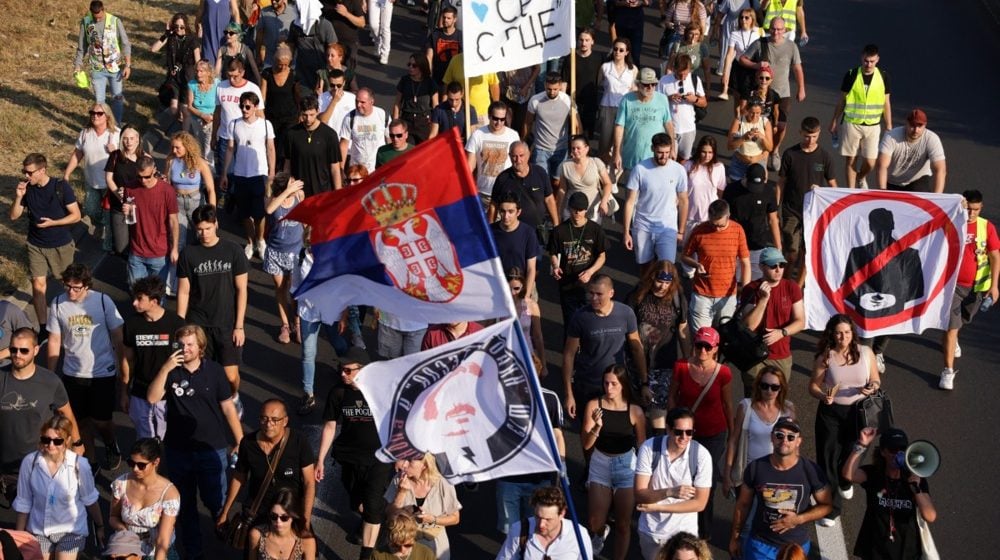
Foto: EPA
What began at the end of last year as a quiet vigil by a few students has grown into one of the largest protests in Serbian history, comparable to the mass demonstrations that toppled autocrat Slobodan Milošević a quarter of a century ago, according to an extensive article in the Washington Post.
The article goes on to say that students are constantly putting pressure on President Aleksandar Vučić, his security apparatus, and pro-government media, which accuse the protesters of being puppets and traitors, influenced by unnamed forces and liberal non-governmental organizations from the West who, they claim, want to destroy the homeland.
This, writes the Washington Post, is a page from the old playbook of tactics.
The first group to be attacked by Vučić’s supporters last year were drama students. Most of the young people carrying banners in the streets still live with their parents. But Serbia’s Generation Z—previously thought to be apolitical, apathetic, and more inclined to emigrate than protest—has surprised the country. Serbia faces a decisive moment: will the country embrace the West and the standards and values of the European Union – with reforms of the judiciary, security services and media – or will it spend another decade on the margins, drawn towards Russia?
The question is how Vučić will respond to the protests, which are becoming increasingly widespread and intense. Many fear repression.
Brussels is closely monitoring the growing unrest. Earlier this month, European Commissioner for Enlargement Marta Koss expressed her dissatisfaction with the “wave of violence and continued use of force against protesters in Serbia.”
Koss said that EU member states are beginning to doubt Serbia’s “sincere commitment to the European path.”
The Washington Post notes that European leaders are speaking very cautiously about Serbia and are carefully encouraging the Serbian leadership, as they believe that too much pressure on the Serbian president could push the country further away from Europe.
However, silence may give the impression that Europe does not care about the democratic regression in Serbia or that it is powerless to stop it.
“We cannot continue as we are now in Serbia,” said Ana (24), a student at the Faculty of Agriculture. She predicted that Vučić would fall. When asked how she could say that, given that the president has been in power for a decade, she replied: “We have awakened the people.”
It seems that history is repeating itself. In 1998, when Serbia was part of the Federal Republic of Yugoslavia, a student movement known as “Otpor!” began at the University of Belgrade, protesting against Milošević during the war in Kosovo. Most of today’s students were not even born at that time.
In interviews, students say they are appalled by what they see as corruption and government incompetence, as reflected in the tragedy at the train station. They started by demanding full accountability for the deaths in Novi Sad, but are now calling for early parliamentary elections.
In a written response to questions from The Washington Post, Vučić, 55, who has been president or prime minister for 11 years, accused the protesters of inciting violence.
“In the last nine months, Serbia has seen more than 23,000 unregistered rallies,” Vučić said.
“What started as a student protest has unfortunately turned into mass blockades and, more recently, violent incidents fueled by extremist groups.” The president’s answers to questions were accompanied by photographs, the Washington Post reported, showing a young man with a stick and another man striking a police officer’s shield in defensive gear.
Vučić said he offered negotiations to the students, but they rejected them, and he rejected calls for early elections, calling them destabilizing.
According to him, the government has launched an investigation into the destruction of the station. Regarding the violence, Vučić said, “More than 170 police officers were injured while performing their duty to protect citizens.”
The Washington Post also wrote about Saturday’s military parade in Belgrade, where 10,000 Serbian soldiers marched, French fighter jets were on display, Russian tanks, and Chinese air defense systems were on display (the American newspaper does not mention that Israeli PULS missile systems and Hermes 900 drones were also on display for the first time).
Students who tried to attend the event “Day of Serbian Unity, Freedom and National Flag” were stopped by the police, the text says.
The young protesters are not children of war, but their parents, who survived the Balkan wars of the 1990s – which involved ethnic cleansing and mass displacement – and NATO air strikes to force Serbia to stop the killings.
Today’s students grew up in a Serbia that hosted the Eurovision Song Contest in 2008, when Belgrade was still a city of entertainment and many believed the country would soon join the European Union. Serbia applied for membership in 2009 and became an official candidate three years later.
However, this promise seems far away at present. The desire to join the European Union remains strong in most of the Balkans, but this does not seem to be the case in Serbia.
According to the latest surveys conducted for the European Commission, support for EU membership is high in Albania (91 percent) and North Macedonia (69 percent), but lowest in Serbia, at only 33 percent.
Anina’s classmate Kristina (25) studies hydrology and is concerned about climate change. At one of the protests in January, Kristina was a guard – she wore a yellow vest and helped ensure the safe movement of the parade participants.
As she stood in front of a stopped car, the driver suddenly accelerated and hit her, throwing her onto the sidewalk, where she hit her head on the concrete. She remembered nothing until she woke up in the hospital. A video of the attack soon went viral.
Students demanded that the prosecutor’s office charge the driver. However, all charges were ultimately dropped because Vučić pardoned the woman who was driving the car, saying that he must “protect the weak, the persecuted, and the victims of daily attacks on students.”
“We are the future of this country, and it is clear that the government does not care about us or our future,” Kristina said. When asked if her parents fear for her safety, she replied, “They are afraid, but they know they cannot stop me.”
Vučić and his supporters call the students “terrorists” and “foreign mercenaries” who are being encouraged by the West to stage “color revolutions” like those that shook Ukraine, Georgia, Armenia, and other countries of the former Soviet bloc.
Belgrade’s history of authoritarianism—from Josip Broz Tito, who ruled Yugoslavia for decades after World War II until his death in 1980—has made students cautious about emphasizing individual leaders. They fear that someone could create a cult of personality.
They also fear for the safety of protesters who appear in the media, so they rely on a rotating group of representatives.
Ela Zeković (24), former president of the student parliament at the Faculty of Political Sciences in Belgrade, once appeared on state television and spoke on behalf of the protesters.
Shortly afterwards, a pro-government tabloid reported that she had been “almost crowned the new leader” of the protests.
They found a BBC Serbia video clip and claimed that Zeković was “enthusiastic about communist ideas” and “unequivocally supported the LGBT movement.” Zeković said that she had participated in pride parades in Belgrade, but that the young person in the photo with the Yugoslav flag from the communist era was not her.
Zeković believes that the state security services are working with pro-government media, which consists of a handful of television stations, tabloids, and websites. Most of the media are allies of Vučić, although some independent outlets still exist.
Nevertheless, Serbia ranks 96th out of 180 countries on the Press Freedom Index compiled by Reporters Without Borders. Investigators from the European Center for Press Freedom, a watchdog group, recently reported that Serbian journalists have been physically attacked and subjected to coordinated smear campaigns.
They found that laws passed in 2023—nominally intended to allow for greater diversity of ownership and pluralism—had in practice enabled the government to tighten its control over the media even further.
Vuk Cvijić, a prominent investigative journalist for Radar magazine, said that last year he was beaten up outside a café by the owner of a pro-government tabloid. In August, a police officer in riot gear approached him and sprayed him with tear gas.
“I stumbled blindly,” said Cvijić, adding that such incidents show that “the hunting season is open for us.”
Vučić said in a statement to the Washington Post that Serbia is “fully committed to its European path, democratic values, and the rule of law” and that the protests pose a threat beyond Serbia’s borders.
“Our priorities are dialogue, stability, and constructive cooperation with our European partners. However, attempts to destabilize our country through violence and disinformation threaten not only Serbia but also the fragile stability of the wider Western Balkans region.”
Nikolina Sinđelić (22), a marketing and communications student at the University of Belgrade, said after the August march in Belgrade that she was detained by members of a special police unit known as JZO – the Unit for the Protection of Certain Persons and Objects. They confiscated her phone, camera, and torch.
Sinđelić said that one of the policewomen became very aggressive, banging her head against the wall and shouting: “Why are you trying to destroy your country?”
According to her, the police officer threatened her with sexual assault in front of other detainees with a torch she was carrying.
On the advice of her lawyer, Sinđelić spoke publicly about her experience as a guest on N1, an independent television station in Serbia. After that, the host, who is close to the government, accused her of “working as an OnlyFans model,” while broadcasting her private photos live—which Sinđelić described as “revenge porn.”
“The goal was to silence me, to destroy me—nude photos, death threats—they used all their power against a student,” she said.
Today, she is recognised on the street, and her name is often mentioned at student protests, where she is considered a martyr and a fighter, concludes the Washington Post in its extensive article on the situation in Serbia./Danas/

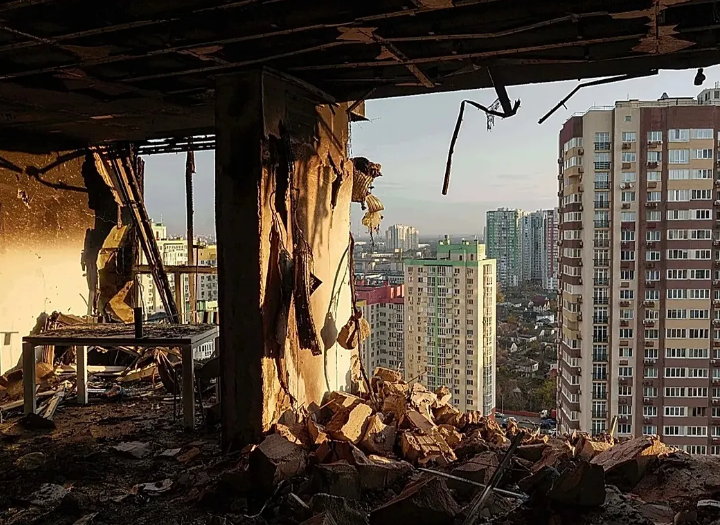 Azerbaijan protests to Russia after Kyiv embassy damaged in Russian missile attack
Azerbaijan protests to Russia after Kyiv embassy damaged in Russian missile attack 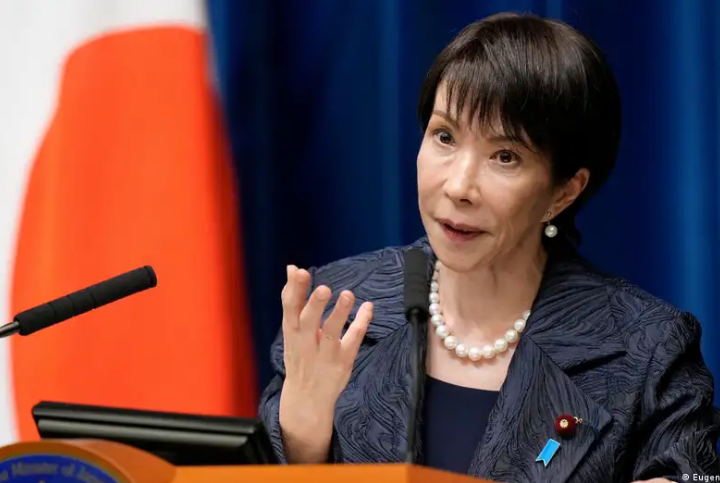 Japan urges China to scale back response in Taiwan row
Japan urges China to scale back response in Taiwan row 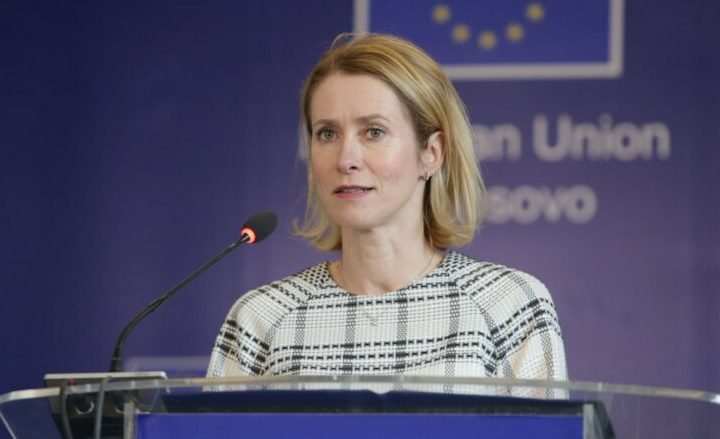 Kallas confirms EU working on new sanctions package against Russia
Kallas confirms EU working on new sanctions package against Russia  Germany agrees new military service plan to boost troop numbers
Germany agrees new military service plan to boost troop numbers 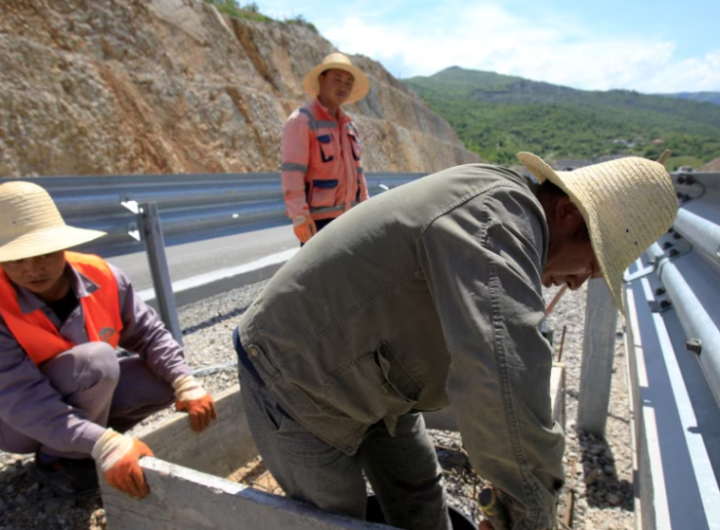 US-sanctioned Chinese company in race to build Montenegro highway
US-sanctioned Chinese company in race to build Montenegro highway 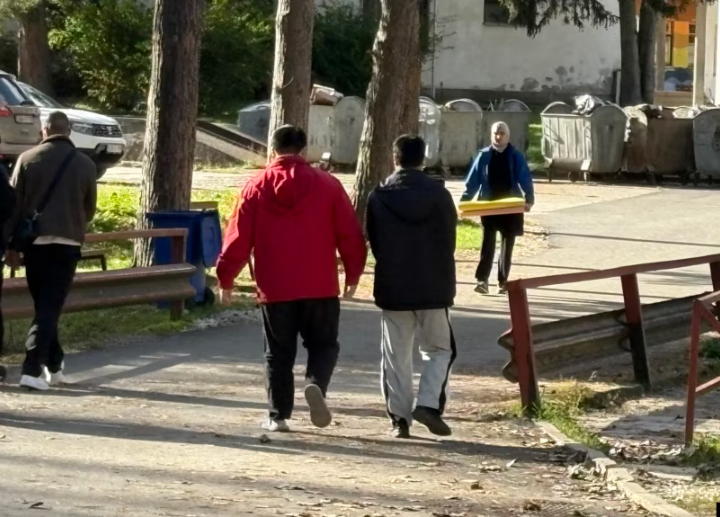 The Western Balkan route – A new path for chinese migrants to the west
The Western Balkan route – A new path for chinese migrants to the west